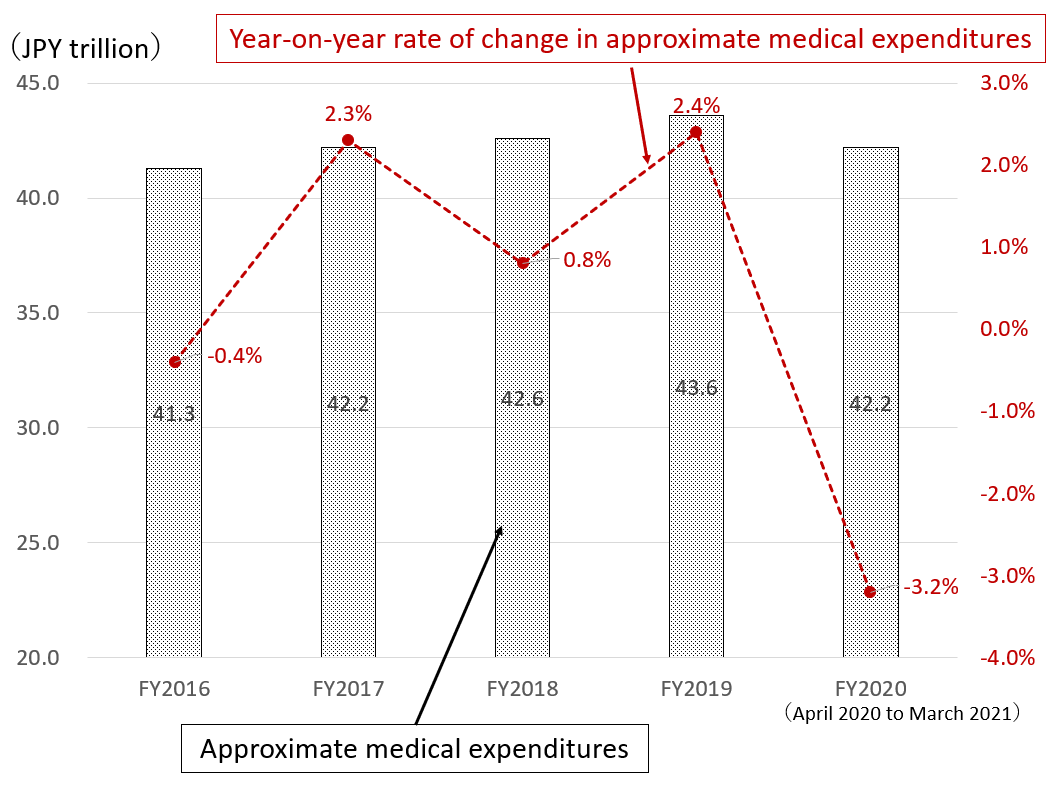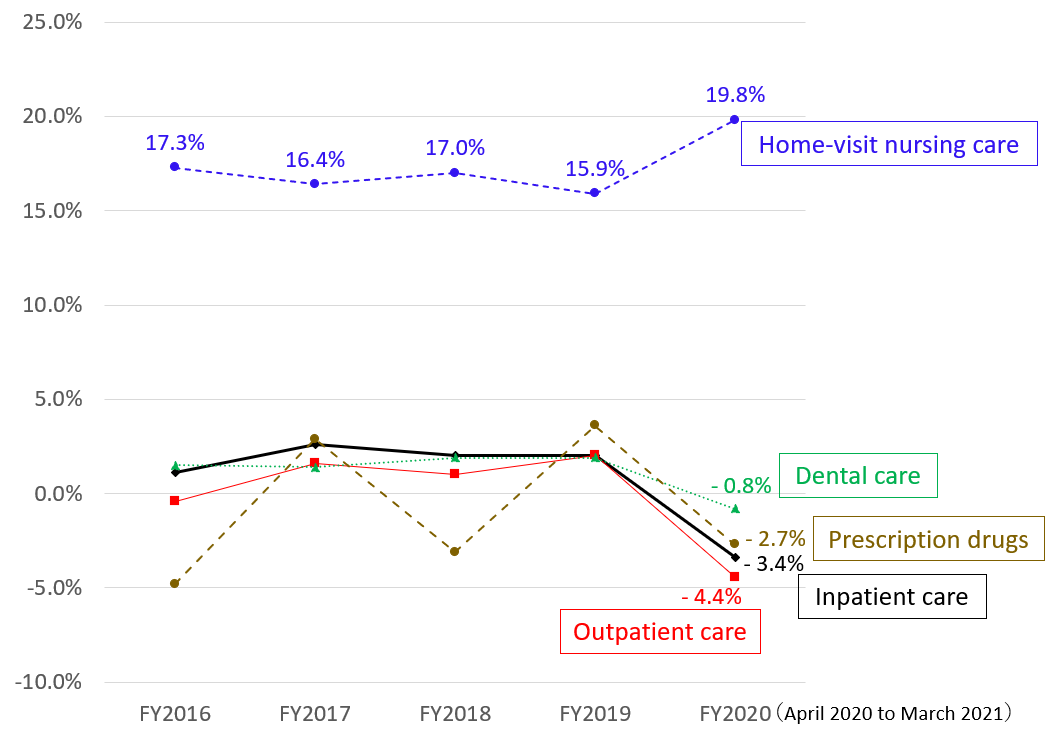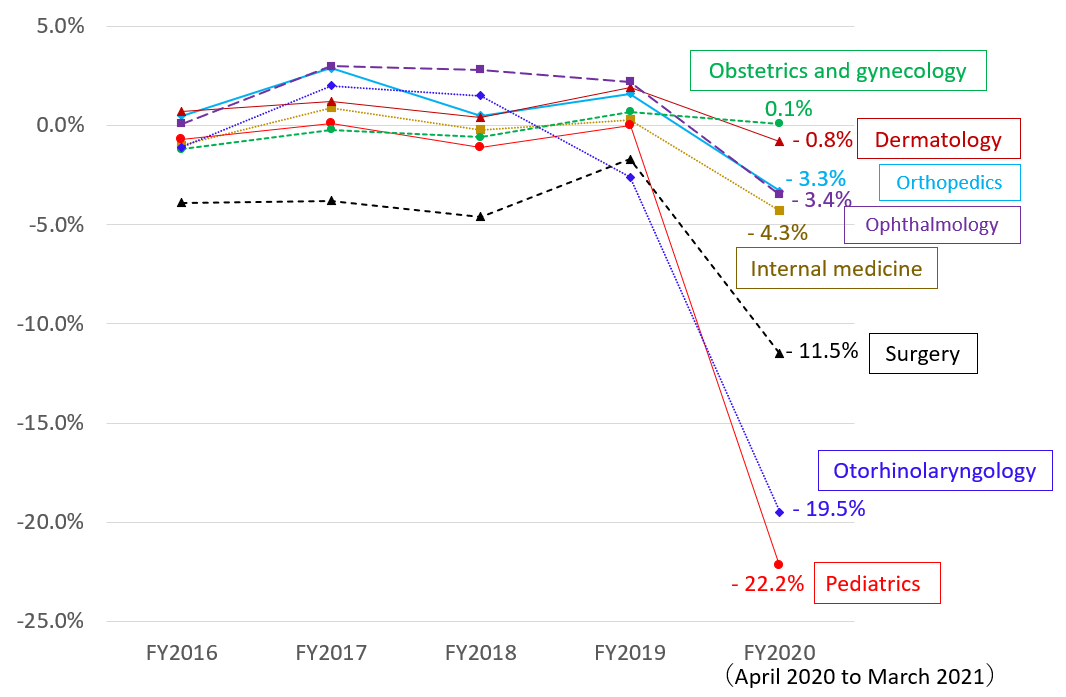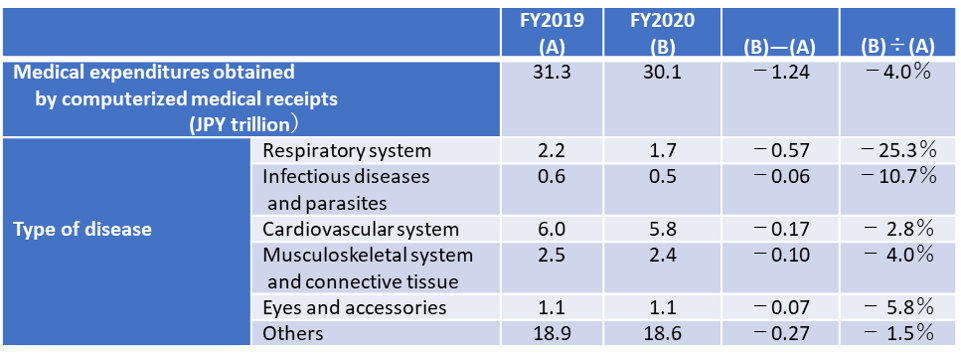Column Finance and the Social Security System 2021.10.06
【Aging, safety net and fiscal crisis in Japan】No.330: Approximate medical expenditure decreased by JPY 1.4 trillion due to the COVID-19 pandemic
In this column series, Yukihiro Matsuyama, Research Director at CIGS introduces the latest information about aging, safety net and fiscal crisis in Japan with data of international comparison
The Ministry of Health, Labour and Welfare announced that the approximate medical expenditure for FY2020 (April 2020 to March 2021) was JPY 42.2 trillion, which is JPY 1.4 trillion less than the JPY 43.6 trillion spent in FY2019 (Figure 1). The approximate medical expenditure is positioned as a preliminary figure for national medical expenditure, and is about 2% less than the national medical expenditure because it does not include the medical expenditure of workers' accident compensation insurance and medical expenditure when a patient bears the full amount without insurance benefits. It also does not include government-funded costs for COVID-19 measures, such as vaccines.
Figure 2 shows the rate of change for each item that is included in the approximation medical expenditure. During the COVID-19 pandemic, medical expenditure for inpatient care, outpatient care, dental care, and prescription drugs decreased compared to FY2019, which reflects the fact that people were refraining from going to medical institutions. Under such circumstances, it is noteworthy that medical expenditure for home-visit nursing care continued to rise. Figure 3 shows the rate of change in outpatient care expenditure per department. For example, the rate of medical expenditure for pediatrics and otolaryngology fell by 22.2% and 19.5%, respectively.
Of the JPY 42.2 trillion that was spent in FY 2020, JPY 30.1 trillion was toward computerized medical fee billing receipts (Table 1). Per disease type, the rate of decrease in medical expenditure related to respiratory conditions was significantly high at 25.3%. Despite the spread of COVID-19, which can cause severe pneumonia, there was a decrease of JPY 0.57 trillion in respiratory disease-related spending. The Ministry of Health, Labour and Welfare put this down to changes in people’s behavior, such as refraining from going to medical institutions for fear of infection and making efforts to maintain social distance by wearing masks and gargling thoroughly.
Figure 1: Approximate medical expenditures
Source: The Ministry of Health, Labour, and Welfare
Figure 2: The rate of change in approximate medical expenses per item
Source: The Ministry of Health, Labour, and Welfare
Figure 3: The rate of change in outpatient care expenditures per department
Source: The Ministry of Health, Labour, and Welfare
Table 1: Changes in medical expenditures obtained by computerized medical receipts
Source: The Ministry of Health, Labour, and Welfare
